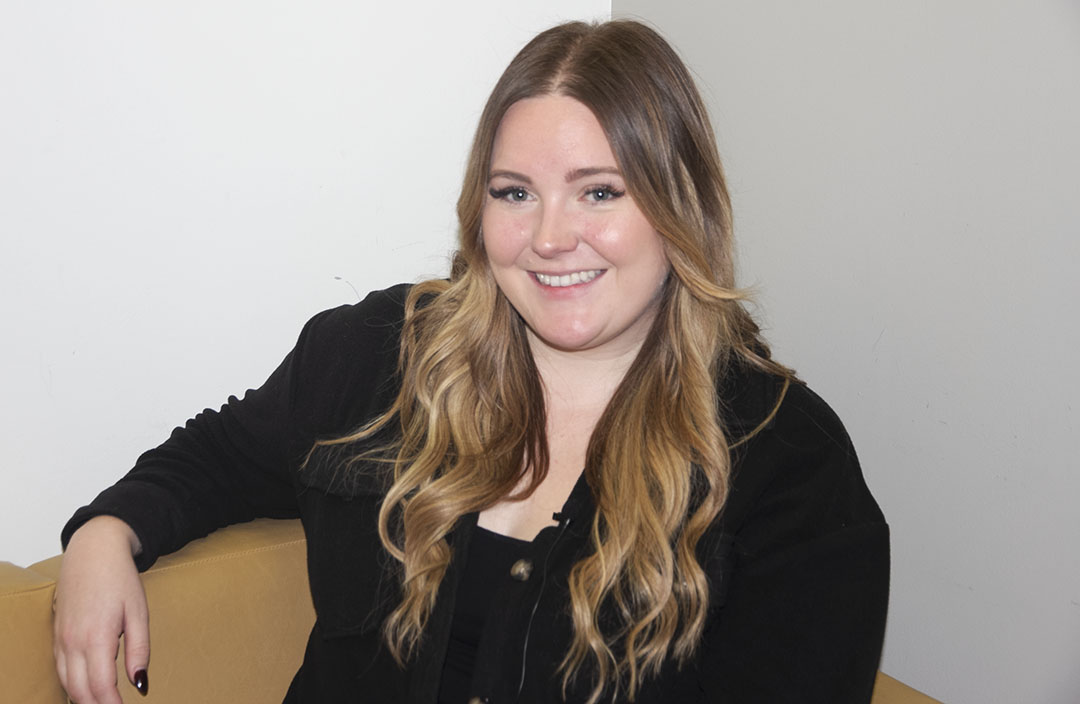Tied by a thick rope with tape restricting the ability to talk or eat – this is what the media portrays as ‘human trafficking.’
While kidnapping is often portrayed as the primary method of trafficking, it is not the most common approach in the Durham Region.
According to the Government of Canada, human trafficking involves the recruitment, transportation or exploitation of an individual and often happens within the borders of the country.
In 2021, Durham Regional Crime Stoppers investigated 336 human trafficking cases. The investigation identified 111 victims under the age of 18.

This image demonstrates how victims are being used as a means to make money by the trafficker.
This would help make stroy stornger as it paints a picture of what trafficking can look like.
Crime Stoppers reported a 142 per cent increase in human trafficking investigations compared to the previous year.
The drastic increase in Durham Region cases represents the prevalence of human trafficking in the community.
This is a large safety concern.
It is crucial for Durham Region residents to be aware of the traffickers, recognize the signs and know how to prevent it.
According to the Criminal Law of Oshawa website, Durham is considered a common ground for human trafficking because of the direct connection to Highway 401.
The route allows victims to be easily moved from connecting cities.
Kate Moore is the human trafficking prevention facilitator at Victim Services of Durham Region. She has worked with human trafficking survivors for over five years.
She says last year, victim services assisted 302 new trafficking victims. Since 2018, there has been a 263 per cent increase in victims and survivors reaching out for support.
“What we see the most is traffickers trying to develop a relationship with their victims. What it actually looks like is this person really preying on someone’s vulnerabilities and building this relationship with them, becoming their hero and saviour,” Moore says.

In this photograph, we see Kate Moore, human trafficking preventon faciliator at Victim Services of Durham Region posing in the interview room of The Chronice.
Moore talked about what human trafficking is and how to prevent it. She shared the signs and a couple statistics of durham region cases.
She encourges others to educate themselves on human trafficking to be aware of what is happening in society.
Moore shares that 80 per cent of traffickers are romantic partners of the victim, leaving 10 per cent to be family or friends.
“A trafficker can really be anybody. They have a connection with their victim,” says Moore.
She says sex trafficking is the most common method of trafficking in Durham Region.
The Durham Region Human Trafficking Coalition reports the average age of recruitment is 13. Three-quarters of the victims are under the age of 25.
However, females are at a higher risk.
“The vulnerabilities can be anything from having low self-esteem, having low self-worth, problems at home, not feeling adequately loved, previous abuse and a history of trauma,” says Moore.
Moore shares that there are four stages to sexual exploitation: luring, grooming, manipulation and coercion and exploitation.
According to The Canadian Centre to End Human Trafficking, the signs that someone is being trafficked range from possessing of personal items (passports, I.D) by someone other than the individual themselves, lack of financial control, abusive partner, excess cash and various different restrictions.
Lynda Harlos is a mother of a sex trafficked survivor. She is a human trafficking prevention educator dedicated to spreading awareness of trafficking through her organization ‘Parents with Purpose.’
Harlos shares her view as a parent of a survivor to educate others on the signs.
“Traffickers are going to do anything they can to be their [victims] hero and give them everything that they want. We can’t give them everything they want as a parent,” says Harlos.
She encourages parents to remind their kids that they are loved and solve problems from a non-judgemental point of view.
Human trafficking cases in Durham Region are on the rise.
The community is recommended to attend trafficking seminars, learn the signs and spread awareness of what trafficking can look like to prevent the increase of victims.
If you, or anyone you know is being trafficked contact the Durham Regional Police Human Trafficking Department or reach out to Victim Services of Durham Region to access the resources for support.
“Empowered youth can not be trafficked,” Kate Moore




